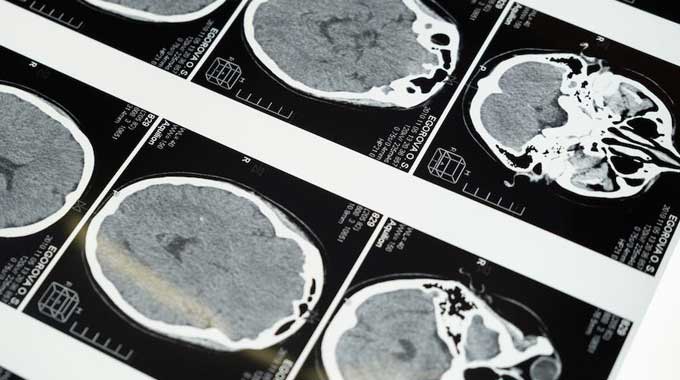Transcranial magnetic stimulation is an innovative, non-invasive brain stimulation treatment that can reduce harmful behaviors associated with eating disorders and improve the individual’s quality of life. It’s an exciting and promising treatment for conditions that affect millions of people across the United States.
- What Is Transcranial Magnetic Stimulation Tms Therapy
- What Is Repetitive Transcranial Magnetic Stimulation Rtms
- What Is Theta Burst Stimulation
- How Does Tms Work
- What Is An Eating Disorder
- What Are Sub Clinical Eating Disorders
- What Causes Eating Disorders
- How Does Repetitive Transcranial Magnetic Stimulation Treat Eating Disorders
- What Are The Side Effects Of Transcranial Magnetic Stimulation Therapy
- Is Rtms Safe
- Tms Treatment At GIA Chicago

What Is Transcranial Magnetic Stimulation (TMS) Therapy?
TMS therapy is an innovative, noninvasive brain stimulation therapy that uses gentle magnetic pulses to stimulate activity in certain brain regions, leading to pronounced changes in mood and behavior. FDA-approved for treatment-resistant depression in 2008, studies have shown that TMS may effectively treat a range of mental health disorders, including anxiety, panic disorders, and addiction.
TMS is a painless procedure that does not require anesthetic or surgery. TMS patients may drive to and from sessions and resume normal activities immediately after treatment. A typical course of TMS consists of daily, twice-daily, or bi-daily sessions over the course of 6 – 9 weeks, making it suitable for clients with busy schedules or important responsibilities.
What Is Repetitive Transcranial Magnetic Stimulation (rTMS)?
rTMS treatment is a type of transcranial magnetic stimulation that uses trains of multiple, repetitive magnetic pulses, as opposed to a single pulse. Because most therapeutic uses of TMS involve rTMS, the two terms are often used interchangeably.
What Is Theta Burst Stimulation?
Theta burst stimulation is a newer form of repetitive transcranial magnetic stimulation that applies magnetic pulses in certain patterns, known as bursts. Theta burst stimulation requires much shorter sessions than standard rTMS, taking around 3-10 minutes instead of 20-40. Research shows that theta burst stimulation produces the same, if not better, results as other forms of repetitive transcranial magnetic stimulation.
How Does TMS Work?
TMS works by passing an electrical current through a magnetic coil which is placed over the client’s head. This generates a magnetic field that passes seamlessly through the client’s scalp, reaching the target brain area beneath. The magnetic field induces a tiny electrical current in each of these nerve cells, stimulating their activity.
Scientists have found that increasing or decreasing brain activity affects many important functions, including emotion, motivation, and reward. People living with mental health disorders like depression or addiction tend to show unusual activity in certain areas, particularly the dorsolateral prefrontal cortex of the brain. By affecting cortical excitability in this area, TMS can produce lasting improvements to symptoms of mental health issues.
What Is An Eating Disorder?
An eating disorder is a type of eating problem that involves a medical diagnosis and medical tests such as blood tests and BMI. Eating problems can happen to anyone, regardless of gender, background, and age. Eating problems are difficult relationships with food that can take many forms, including undereating and binge eating.
There are several different types of eating disorders, including:
- anorexia nervosa – when someone doesn’t get enough food and has a very low BMI
- bulimia nervosa, which involves cycles of binging (eating large amounts of food in one go) and purging (getting rid of the food you ate after binging)
- binge eating disorder – when someone feels unable to stop eating, even if they want to
- Other specified feeding and eating disorders, when someone has an eating disorder but does not meet all the criteria for any of the specified conditions
Sometimes, it can be difficult to get a diagnosis for an eating disorder, such as when symptoms are difficult to categorize or span more than one disorder. Because food is one of the ways that our emotions are expressed, it can be helpful to consider the emotions and feelings behind an eating disorder and not see it in a purely medical way.
Eating disorders should always be taken seriously. They can cause significant damage to your mental and physical health, as well as your relationships with others, your work, and your ability to enjoy life. Anorexia nervosa has the highest fatality rate of any mental disorder.
If you think you or someone you know may have an eating disorder, it’s important to seek professional help as soon as you can. With the right support, recovery – and a healthy life – is possible for anyone.
What Are Sub-Clinical Eating Disorders?
Sub-clinical disorders are eating problems that a doctor hasn’t considered severe enough to receive a formal diagnosis. However, this does not mean that the problem isn’t serious or that the individual isn’t suffering from their symptoms.
If you have a sub-clinical eating disorder, it’s important to still seek help and support to recover and prevent it from developing into a more serious disorder. You could also think about visiting another doctor to confirm the diagnosis.
What Causes Eating Disorders?
Eating disorders are often very complex and can have several causes. Some of these include:
- certain common traits, such as low-self esteem, a desire for perfection, and a tendency to be self-critical
- difficult life events, such as abuse, the death of a loved one, or stress and pressure
- family issues, such as very strict parents or parents who have high expectations
- social pressures which, while not causing eating disorders, may contribute to their development
- physical and mental health problems
- biological and genetic factors
How Does Repetitive Transcranial Magnetic Stimulation Treat Eating Disorders?
There are several treatments available for anorexia nervosa, bulimia nervosa, binge-eating disorder, and non-specified disorders. The most common treatments involve talk therapies, such as forms of cognitive-behavioral therapy and interpersonal therapy.
However, while talk therapies can be very effective for some people, others do not respond so well. Around 20-30% of people with anorexia nervosa have a severe and enduring form of the condition.
In recent years, scientists have been exploring new treatments for eating disorders to help support individuals in emotional and physical recovery. TMS has emerged as a promising treatment for enduring anorexia nervosa that may influence eating-related behaviors and improve symptoms of the illness.
Recent brain imaging has found that certain brain circuits in individuals living with anorexia nervosa look different from those in people without the condition. In particular, they show differences in the insula region, a part of the cerebral cortex involved with functions such as body perception and reward. Other imaging suggests that pathways in the dorsolateral prefrontal cortex may be underactive or overactive in people with eating disorders. By stimulating activity in these regions, repetitive transcranial magnetic stimulation therapy may be able to cause significant changes in thoughts and behaviors and improve symptoms of eating disorders.
Randomized controlled trials exploring the effectiveness of TMS for eating disorders have found that the treatment can reduce some of the thoughts and emotions that drive an eating disorder. A 2013 study found that applying repetitive transcranial magnetic stimulation over the left dorsolateral prefrontal cortex (DLPFC) reduced levels of feeling fat, feeling full, and feeling anxious. In 2018, a randomized controlled feasibility trial published in the BMJ found that rTMS treatment improved BMI, eating disorder symptoms, and quality of life.
A preliminary exploration of applying repeated transcranial magnetic stimulation alongside concurrent antidepressant medication found that the antidepressant medication appears to improve the effectiveness of rTMS treatment, causing a greater response rate among people with enduring anorexia nervosa. In the study, 26 people with severe and enduring anorexia nervosa received 20 sessions of high-frequency repetitive transcranial magnetic stimulation over the DLPFC. Some participants also took antidepressant medication.
Those who took the medication showed a greater reduction in eating disorder (ED) symptoms than those who did not (although depressive symptoms were not affected, suggested that the results were not related to changes in mood). While further research with larger samples is necessary, the study is a promising and exciting development for clinical practice and individuals living with anorexia nervosa.
What Are the Side-Effects of Transcranial Magnetic Stimulation Therapy?
Transcranial magnetic stimulation (rTMS) has few side effects, the most common being temporary mild headaches and scalp discomfort. These often reduce throughout treatment.
While TMS comes with a small risk of seizures, it is no greater than the risks of antidepressant medication and other treatments.
Is rTMS Safe?
Repetitive transcranial magnetic stimulation (rTMS) is an FDA-approved treatment for major depressive disorder, anxiety symptoms in major depression, and obsessive-compulsive disorder. In the EEA, it is also certified for a variety of other conditions.
These certifications are based on comprehensive evidence that TMS is a safe and effective treatment for most groups of people. There are, however, some people for whom TMS is not safe, such as those with metal implants in their heads. You should always share with your doctor any medical or otherwise relevant information before starting a course of treatment.

TMS Treatment at GIA Chicago
GIA Chicago is a pioneering mental health treatment center that specializes in transcranial magnetic stimulation therapy. We offer individualized treatment programs based on the latest advances in medical science to ensure clients receive the most effective treatment for their needs. We’re committed to helping every client return to the best version of themselves, pursue their goals, and achieve their full potential.
Our founder Dr. Bonci is a world-leading researcher of TMS therapy, co-authoring several ground-breaking papers. Together with his team, he applies this exceptional experience and expertise to your recovery journey, acting with compassion and integrity at all times.
If you are living with anorexia nervosa, another eating disorder, or other mental health concerns, contact us today. You’re in the best hands.





